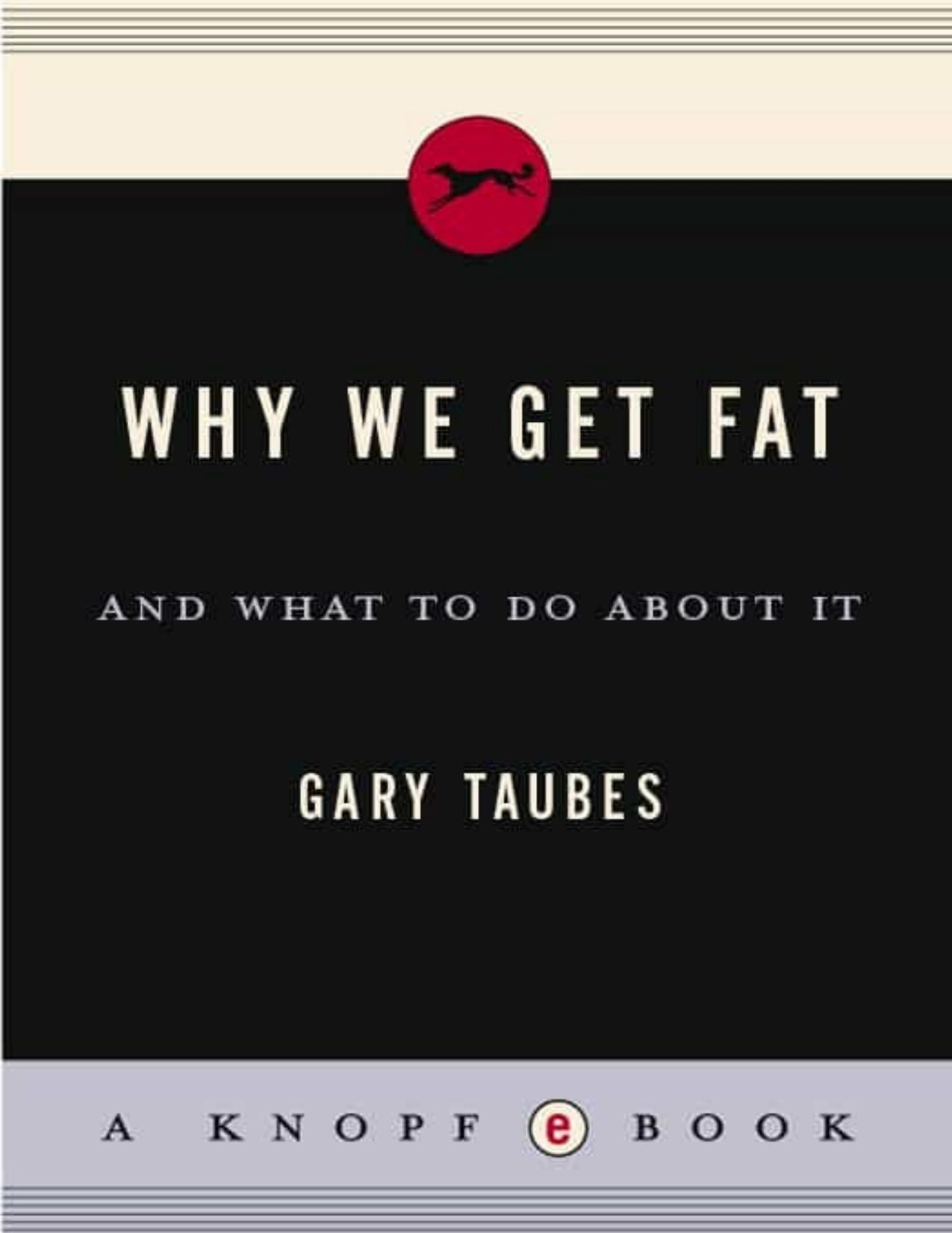Why We Get Fat by Gary Taubes

Author:Gary Taubes
Language: eng
Format: mobi, azw3, epub, pdf
ISBN: 9780307595515
Publisher: Knopf Doubleday Publishing Group
Published: 2010-12-28T05:00:00+00:00
Here’s another complication: how your tissues respond to insulin changes will change with time (and in response to your diet, as I’ll discuss shortly). As you get older, you get more insulin-resistant, but this almost invariably happens to your muscle tissue first and only later, if at all, to your fat tissue. As a general rule, fat cells always stay more sensitive to insulin than muscle cells do. So, even if you’re lean and active when you’re young, with your fuel-partitioning needle pointing toward fuel burning, your muscle cells are likely to become resistant to insulin as you get older. As they do, you’ll respond by secreting more insulin.
This means the needle on the fuel-partitioning gauge will move to the right as you age—more and more calories will be diverted into fat, leaving fewer and fewer available to fuel the rest of the body. As you enter middle age, you’ll find it increasingly difficult to remain lean. You’ll also begin to manifest a multitude of other metabolic disturbances that accompany this insulin resistance and the elevated insulin levels that go hand in hand: your blood pressure goes up, as does your triglyceride level; your HDL cholesterol (aka, the “good cholesterol”) goes down; you become glucose intolerant, which means you have trouble controlling your blood sugar, and so on. And you’ll become increasingly sedentary, a side effect of the energy drain into the fat tissue.
In fact, the conventional wisdom that those of us who fatten as we move into middle age do so because our metabolism slows down, probably has this cause and effect backward. More likely is that our muscles become increasingly resistant to insulin, and this partitions more of the energy we consume into fat, leaving less available for the cells of muscles and organs to use for fuel. These cells now generate less energy, and this is what we mean when we say that our metabolism slows down. Our “metabolic rate” decreases. Once again, what appears to be a cause of fattening—the slowing of our metabolism—is really an effect. You don’t get fat because your metabolism slows; your metabolism slows because you’re getting fat.
Download
Why We Get Fat by Gary Taubes.azw3
Why We Get Fat by Gary Taubes.epub
Why We Get Fat by Gary Taubes.pdf
This site does not store any files on its server. We only index and link to content provided by other sites. Please contact the content providers to delete copyright contents if any and email us, we'll remove relevant links or contents immediately.
How to Be a Bawse: A Guide to Conquering Life by Lilly Singh(7486)
Deep Work by Cal Newport(7082)
The Longevity Diet by Valter Longo(5062)
The Fat Loss Plan by Joe Wicks(4920)
The Four-Pack Revolution by Chael Sonnen & Ryan Parsons(3978)
The Ultimate Bodybuilding Cookbook by Kendall Lou Schmidt(3945)
The French Women Don't Get Fat Cookbook by Mireille Guiliano(3660)
Not a Diet Book by James Smith(3422)
Super Food Family Classics by Jamie Oliver(3416)
Factfulness_Ten Reasons We're Wrong About the World_and Why Things Are Better Than You Think by Hans Rosling(3237)
Turn Up Your Fat Burn! by Alyssa Shaffer(3217)
Self-Esteem by Matthew McKay & Patrick Fanning(3144)
Tom Kerridge's Dopamine Diet: My low-carb, stay-happy way to lose weight by Kerridge Tom(3110)
Body Love by Kelly LeVeque(3058)
The Unbecoming of Mara Dyer by Michelle Hodkin(3045)
Tone Your Tummy Type by Denise Austin(2845)
The Fat Chance Cookbook by Robert H. Lustig(2836)
LL Cool J's Platinum 360 Diet and Lifestyle by LL Cool J(2736)
Men's Health Best by Men's Health Magazine(2602)
